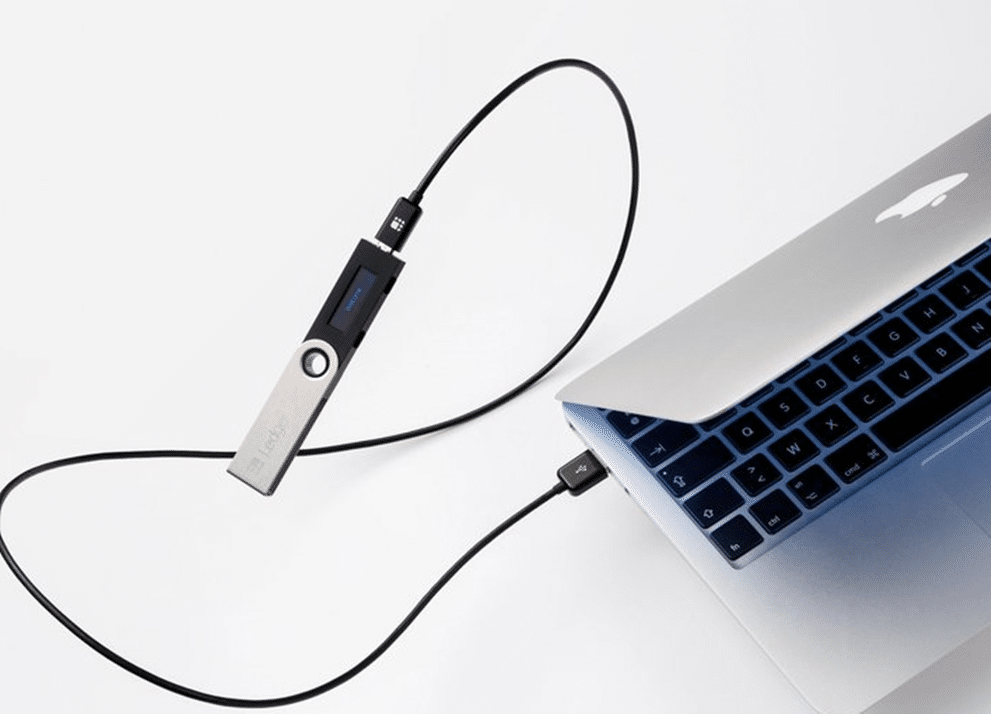Competition among crypto hardware manufacturers Trezor and Ledger is heating up. The two companies have launched new product innovations almost simultaneously. Also, Sony has just announced the development of a new crypto hardware device.
Starting with the Sony announcement, the tech company has developed a device that will enable crypto users to store their digital currencies securely. According to the press release, its Computer Science Laboratories tech development arm has developed a secure hardware wallet that works using contactless integrated circuit technology.
This innovative feature has been hailed as an added convenience for users. Traditional crypto hardware wallet devices by competitors, such as Trezor and Ledger, utilize a USB cord.
You can access the cordless wallet using devices featuring a near-field communication (NFC) chip. It’s been set up to hold an assortment of cryptocurrencies that includes Bitcoin, Litecoin and Ethereum. In addition, it has an integrated tamper-proof module for enhanced security and is apparently capable of running several applications related to the blockchain.
The move has been regarded by industry analysts to be a strong signal that the company is seriously considering going into the blockchain space. The Sony report, however, highlights that development is still in progress and aimed at pushing the device to commercialization.
In April, Sony filed a blockchain-based Digital Rights Management patent that could be related to the device. The system would be able to verify user rights on blockchain platforms by generating unique user identifier keys. In August, the company also filed a distributed ledger technology patent for a device to access blockchain platforms.
The device would allow access to platforms via numerous virtual electronic nodes. The technology provides enhanced security capabilities and enables devices to perform an array of transactions based on a consensus mechanism.
The new crypto hardware development news comes in the wake of fierce competition within the industry among major players.
A New Blockchain Crypto Hardware Device
Just as Sony announced its advanced crypto hardware technology, Blockchain.com launched a new device developed in conjunction with Ledger. Called the Blockchain Lockbox, it’s compatible with the company’s platform.
The device allows you to transfer their cryptocurrency holdings from the platform to the wallet. You can also use it to access online user accounts and enable clients to carry out crypto to crypto trades. It supports Bitcoin, Ethereum, and Bitcoin Cash. According to Ledger President, Pascal Gauthier, it’s the ability to immediately move from a cold to a hot storage wallet that makes the product truly unique.
Ledger has been making major market moves to amplify its success after reaching its one million sales milestone at the beginning of the year. On October 30, the crypto wallet manufacturer announced that it would be expanding its operations in Hong Kong, with Benjamin Soong as its Head of Asia Pacific (APAC) region.
The move will help the company meet growing demand for both the Ledger Vault, a cryptocurrency wallet management solution, and its Nano S product.
The Ledger Vault runs on BOLOS, a custom software integrated directly into its hardware chip. The company’s foray into the Asian market is also expected to positively impact sales of its popular Ledger Nano S hardware wallet.

Trezor Wallet Update
Just days before the Ledger Blockchain crypto hardware release announcement, Trezor announced the addition of an exchange feature to its wallet. The built-in feature would use the Shapeshift and Changelly platforms to effect transactions. Trezor wallets currently support over 690 coins, including the most popular digital currencies such as Bitcoin, Ripple, Ethereum, Dash, NEM (XEM) and VeChain.
The Crypto Hardware Market Is Growing
The cryptocurrency hardware market has been growing steadily over the years and was valued at $94.61 million in 2017. It’s projected to reach 391.64 million by 2023. With over 250,000 cryptocurrency transactions occurring every day, secure cold storage hardware for digital assets is fast becoming a priority.
Currently, USB crypto wallets account for about 88 percent of the market. Screenless versions, which are generally less secure, are the cheapest. They are largely responsible for driving base market growth and are especially common among newbie enthusiasts.
In the long run, companies are expected to increase innovation in this segment to lower acquisition costs. This currently seems to be the main hurdle limiting the rapid expansion of the crypto hardware market.
Right now, major market players strive to offer customers the most feature-filled, secure devices possible at affordable rates.
[thrive_leads id=’5219′]
What’s Driving Market Growth
With cryptocurrency platform hacks now occurring more frequently than ever, cryptocurrency investors, HODLers, and enthusiasts alike are looking for safe and reliable storage options. On the virtual versus hardware wallet debate, the general consensus is that cold storage of digital assets on offline-hardware is much more secure.
One of the main reasons why people consider crypto hardware wallets safer is because private keys are kept offline, so there’s limited exposure to hackers. Most cryptocurrency hardware wallets, especially from established companies, also have point-to-point mechanisms that prevent virus infections.
Moreover, you have to confirm transactions via the device to gain access to digital currency management features. This is not to mention that many advanced wallets have pin security. In the event that a hardware wallet is lost, you can regenerate private keys using the seed phrase.
Online crypto wallets are more susceptible to malware and a multitude of data interception methods. For example, a hacker could easily record key details over an unencrypted connection using malware. Virtual wallets that allow password reset via email are also vulnerable because email addresses can be hacked to reset platform passwords and gain unauthorized access.
(Featured Image Credit: Pixabay)






